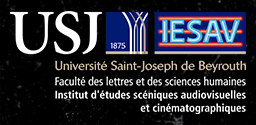Regards
Keywords
heterotopia, sacralization, intermediality, materialization, memory, funeral
Document Type
Article
Abstract
In The Double Death of Quincas-Water-Bray by Jorge Amado and its Egyptian cinematographic adaptation, The Paradise of the Fallen Angels by Ossama Fawzy, the funerary preparation leads to an ironic reflection on life and death, and the confrontation between the value systems of the bourgeoisie and the marginalized.
This article studies the question of borders, “real” or virtual, between narrative spaces.
It is based on the concept of heterotopia (Michel Foucault), which offers a reflection on the constitution of a “different space” within the real location, and the notion of intermediality (Silvestra Mariniello), which questions the conceptual space that emerges between different tangent media.
The analysis of narrative processes and cinematographic techniques illuminates the way a private, profane, and everyday space is transformed into a public, sacred, and funeral space.
Résumé
Dans Les deux morts de Quinquin-La-Flotte de Jorge Amado et son adaptation cinématographique égyptienne, Le Paradis des anges déchus d’Ossama Fawzy, les préparatifs des funérailles donnent lieu à une réflexion ironique sur la vie et la mort, et sur la confrontation entre le système de valeurs de la bourgeoisie et celui des marginalisés.
Cet article étudie la question des frontières, « réelles » ou virtuelles, entre des espaces narratifs.
Il s’appuie sur le concept d’hétérotopie (Michel Foucault), qui offre une réflexion sur la constitution d’un « espace différent » au sein d’un emplacement réel, et sur la notion d’intermédialité (Silvestra Mariniello), qui interroge l’espace conceptuel émergeant entre différents médiums tangents.
L’analyse des procédés narratifs et des techniques cinématographiques éclaire la façon dont un espace privé, profane et quotidien se métamorphose en un espace public, sacré et funéraire.
Recommended Citation
El-Séguiny, Dahlia
(2021)
"L’adieu hors de tout lieu. L’espace funéraire réinventé par J. Amado, réimaginé par O. Fazwy,"
Regards: Vol. 25:
No.
25, Article 4.
DOI: 10.70898/regards.v0i25.601
Available at:
https://e-journals.usj.edu.lb/regards/vol25/iss25/4
Included in
Comparative Literature Commons, Creative Writing Commons, Film and Media Studies Commons, Fine Arts Commons, Theatre and Performance Studies Commons


